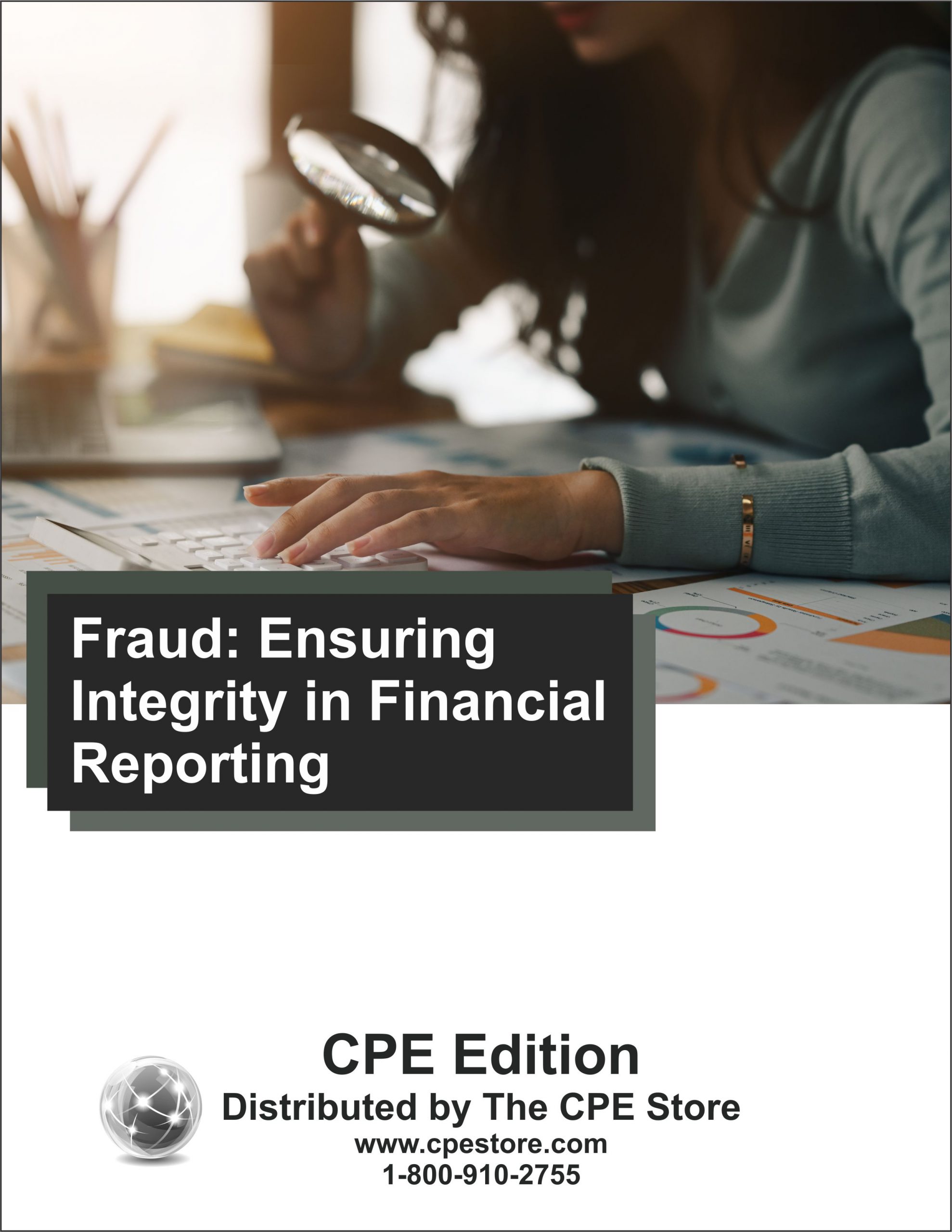Fraud: Ensuring Integrity in Financial Reporting
NASBA field of study: Accounting Course credit: 6 hours
A corporate scandal involves alleged or actual unethical behavior by people acting within or on behalf of a corporation. Since the turn of the century, the U.S. has seen some large corporate collapses and scandals due to shoddy and deceptive accounting practices.
Many companies, shareholders and employees suffered as stock prices fell and reputations were tarnished when businesses conducted questionable practices. This course is divided into four parts with topics covering the identification of the common financial shenanigans demonstrated with a series of real-life cases and addressed ongoing financial reporting issues (e.g., restatements, SEC enforcement actions).
It provides explanations of the basic accounting rules for stock-based compensation, identification of the regulations that protect investors from unethical business practices and the impact of Sarbanes-Oxley Act, including the creation of PCAOB, reforms of corporate America and improvements in audit quality.
Additionally, this course discusses internal control reporting requirements, the role of the audit committee, disclosure controls, personal accountability and it demonstrates ways to promote high levels of accountability and transparency. It further explains the importance of business ethics and corporate social responsibility and discusses the role of good corporate governance in protecting shareholder value.
Course level: Basic. Prerequisites: None.
Course includes integrated text and study guide, final exam, and grading service.
Course number: AA734501
